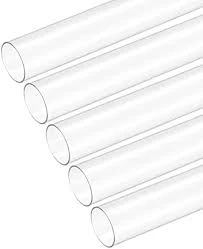Ноя . 02, 2024 09:16 Back to list
ppr cold water pipe
Understanding PPR Cold Water Pipes Benefits, Applications, and Considerations
PPR (Polypropylene Random Copolymer) cold water pipes have gained significant traction in modern plumbing and construction due to their numerous advantages. Unlike traditional piping materials such as PVC or metal, PPR pipes offer superior performance, durability, and efficiency, making them an ideal choice for cold water distribution systems.
One of the key benefits of PPR pipes is their resistance to corrosion and chemical degradation. In environments where cold water may come into contact with various substances, PPR pipes maintain their integrity without succumbing to rust or breakdown. This property ensures that the water remains free from contamination, providing a safe and hygienic supply for residential and commercial use.
Understanding PPR Cold Water Pipes Benefits, Applications, and Considerations
The lightweight nature of PPR pipes simplifies transportation and installation. Unlike heavier alternatives like metal pipes, PPR pipes can be easily handled, allowing for quicker and more efficient installation processes. This attribute not only saves time but also reduces labor costs, making PPR an economical choice for builders and contractors.
ppr cold water pipe

In terms of thermal insulation, PPR pipes perform well by minimizing heat loss, which is particularly beneficial in applications involving the transport of cold water. This ensures that the cold water remains at the desired temperature for a longer period, providing comfort and efficiency in residential and commercial settings.
PPR pipes also offer good flexibility, which means they can be easily bent and shaped to fit around obstacles during installation. This flexibility can be particularly advantageous in complex plumbing layouts, reducing the need for excessive fittings and joints that can create potential leak points.
Moreover, PPR pipes are eco-friendly, as they can be recycled at the end of their life cycle, contributing to sustainability in construction practices. Their production process is also less energy-intensive compared to metal pipes, aligning with global efforts to reduce environmental impact.
However, it is essential to take certain considerations into account when using PPR cold water pipes. Proper installation techniques must be followed to avoid issues such as joint failure or leakage. Additionally, while PPR pipes excel in cold water applications, they may not be suitable for hot water systems unless specifically designed for such use.
In conclusion, PPR cold water pipes offer a plethora of benefits, including durability, chemical resistance, and ease of installation. Their application in plumbing systems is rapidly growing, making them a popular choice for new constructions. As construction practices evolve, embracing materials like PPR can lead to more efficient, safe, and environmentally friendly plumbing solutions.
-
PVC Transparent Sheet Roll - Durable & Flexible PVC Plastic Sheet Roll for Industrial & Home Use
NewsJun.24,2025
-
High-Quality PVC PPR Pipes and Fittings Durable ERA PPR Solutions
NewsJun.10,2025
-
High-Quality Large HDPE Sheets & Large Diameter PVC Pipe Durable Large PVC Pipe Supplier
NewsJun.10,2025
-
High Density Polyethylene Cutting Board - Durable & Food Safe
NewsJun.09,2025
-
3 Inch PVC Pipe for Durable Irrigation Affordable & Reliable
NewsJun.09,2025
-
Premium PPR Plastic Water Pipe Fittings - Durable & Leak-Free
NewsJun.09,2025

